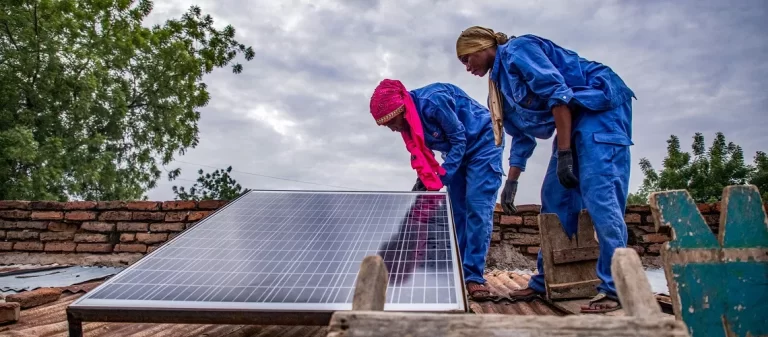Southeast Asia is steadily moving towards clean energy and increasing renewable energy sources for generating power. In this effort, it is also focusing on greening value chains and shifting to more sustainable industry practices, which also includes reskilling its labour force to accept new technologies and modes. This also includes ensuring jobs to vulnerable groups. This was disclosed by ADB Southeast Asia Development Solutions (SEADS) in its report sighting solutions for just energy transition. The organisation help a steady stream of insights on new technologies, innovations, and best practices that can help countries address pressing development challenges.
The report by SEADS mentioned about the recent session on “Jobs of the Future: Building Diversity into the Net-Zero Transition,” at the ADB Southeast Asia Development Symposium (SEADS), where Veronica Joffre, Senior Gender and Social Development Specialist at the Asian Development Bank (ADB), said, “It is people who are at the core of the transformation. It will be people who make or break this process.” She stressed on the importance of building enough green talent to meet the current demand and to equip the workforce to contribute to the change.
Further, Google.org Asia–Pacific Lead Marija Ralic informed that the World Economic Forum predicts that 50% of current employees need to be reskilled. She noted that employers and employees alike must learn to leverage technology for current and new jobs.
Prateek Hegde, Chief Operating Officer of Generation Asia–Pacific, said, “The first task will be to identify the skills that will be needed in the transition. The second—and more important—task is to increase access to skilling.” “It’s important to reinvent how education and skilling will be designed and [be] made available to people from all backgrounds.Invest in skilling before the transition actually happens,” he said.
Save the Children Regional Advocacy and Campaigns Director for Asia Shaheen Chughtai pointed out that The transition to a green economy cannot be done without the participation of women and youth who are active proponents of the net-zero transition.
Speakers also stressed on the fact that women are currently underrepresented in sectors likely to play a crucial role in determining access to new green jobs, such as energy transition, transportation, forestry, land use, and marine and fisheries.
There was the need felt for the equal job opportunities to be created between men and women,by net zero transition. risking further widening of existing gender inequalities in the labor market. It was highlighted that men are currently significantly better placed than women to take advantage of the new green job opportunities arising from the transition. Thus,for women not to be left behind in this transition there is a need for targeted support.
Economic Research Institute for ASEAN and East Asia (ERIA) Strategy and Partnership Director, Giulia Ajmone Marsan emphasised that inclusion and sustainability are interconnected. “If the green future is not an inclusive future, the green transformation will be slowed down, so it’s really an imperative. If we shape a green transformation that is not inclusive enough, we are really missing a big opportunity,” she noted.

